Like a great boxer, older managers need to know when to stop - opinion
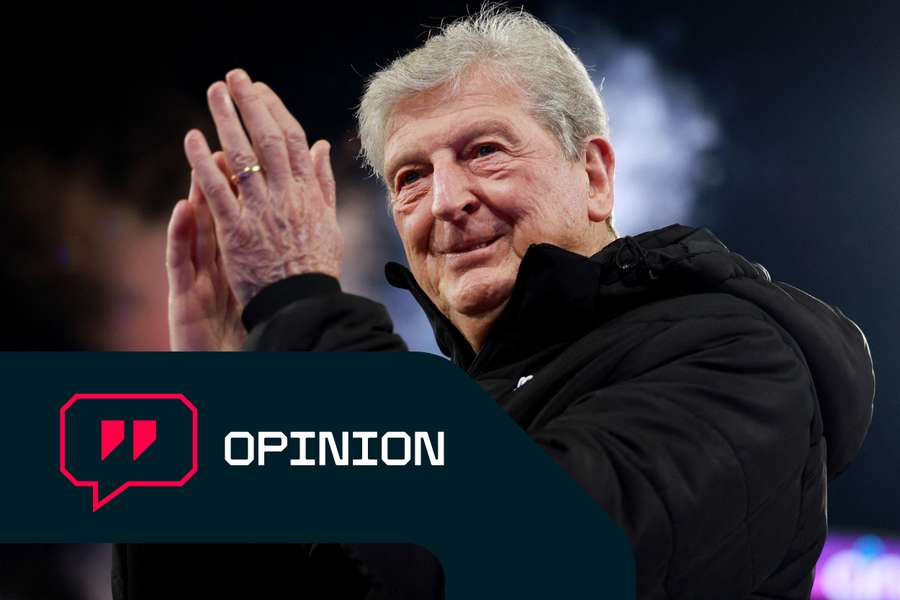
Firstly and most importantly Hodgson is "doing fine" according to the club, and has since left the hospital and is recuperating well at home.
At 76 years young the man is obviously no spring chicken and he has chalked up a tremendously colourful career in management that has taken him across the world, where he's enjoyed spells at the helm of European giants such as Inter Milan and Liverpool, as well as bestowing upon him the honour of coaching his country's national side.
Question marks surrounded his initial re-appointment at Palace (he had previously been in charge from 2017 to 2021 before retiring and subsequently unretiring) but it's hard to argue the fact that Roy delivered to some extent, saving the club from getting dragged into a relegation scrap and securing a very healthy 11th-place finish last term.
This season he's struggled though, with his young Palace side - filled with pacey and exciting talent - often falling foul to restrictive, shall we say 'less than glamorous' tactics that perhaps didn't befit the skillsets available, such as the likes of Eberchi Eze and Michael Olise.
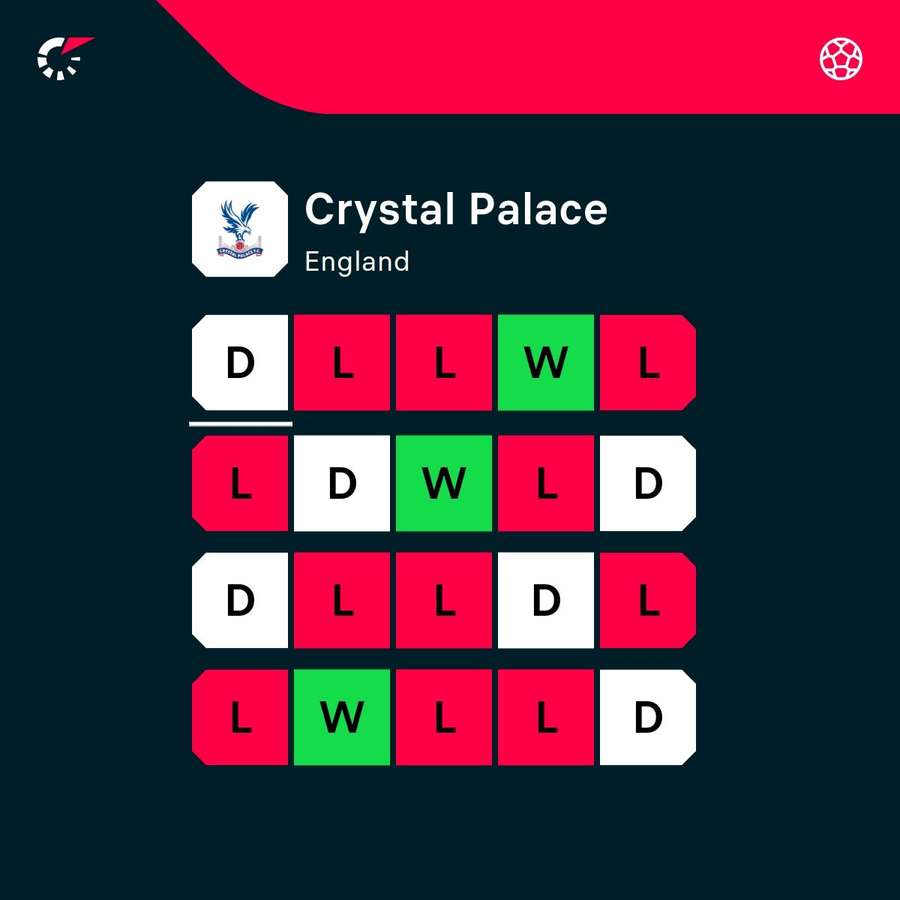
Injuries to his key stars have also hampered their progress but it was clearly a ship that was sinking in one drastic direction and a decision at board level had to be made.
Chairman Steve Parish, to his credit, had treated the situation delicately and somewhat respectfully, at least up until the last few days when the all-but-confirmed rumours of Hodgson's imminent sacking became apparent on Thursday.
Cue a cancelled press conference and difficultly timed illness forcing a hospitalisation, which left the whole scenario up in the air until Monday afternoon - hours before Palace's visit to Everton in the Premier League - in which Hodgson finally revealed he was "stepping down in order to help the club move forward" with new boss Oliver Glasner, who had seemingly already long been lined up and primed to take over.
In many ways it was a conclusion that worked for all parties: Hodgson could state that he was leaving rather than the indignity of being fired, Parish could avoid some sort of migraine-inducing employment tribunal, and fans of the club could say goodbye to a manager they will always remain fond of.
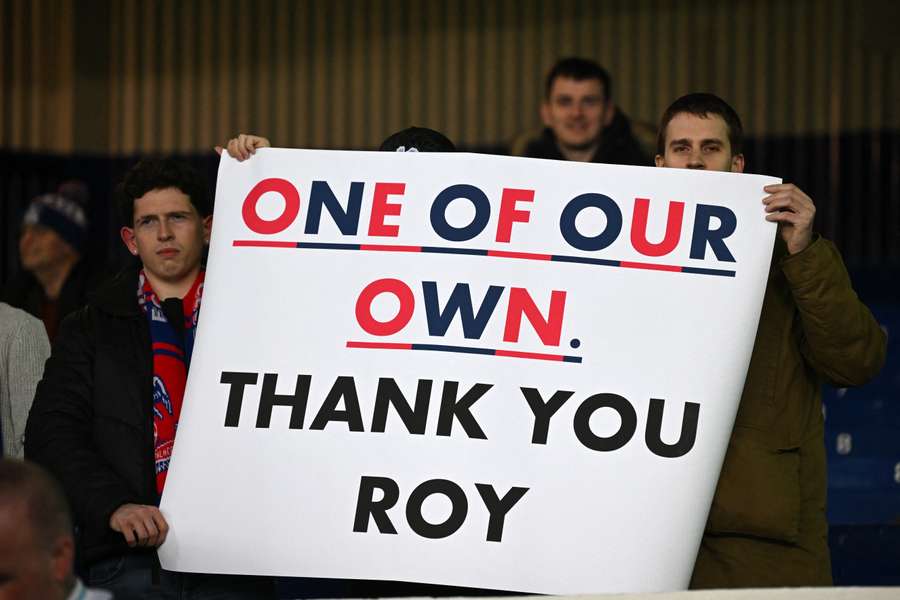
An unfortunate series of events
But had this unfortunate health scare not happened, would it have worked out smelling of the roses it does now? In a way, it doesn't matter.
However, it still begs the question - are some of the elder statesmen of football management unable to let go? Would Hodgson have had the opportunity to quit if none of this had happened? Did the manner of the circulating rumours of his imminent sacking trigger his sudden illness?
His comments do suggest that he would have left at the end of the season anyway, and perhaps that he was even aware of the fancied former Frankfurt boss coming in. But that in itself suggests that he wouldn't have been willing to walk away now, even though he probably should have done, maybe even at the end of the last campaign.
He is, after all, leaving the club pretty much in the same place he found them last time out.
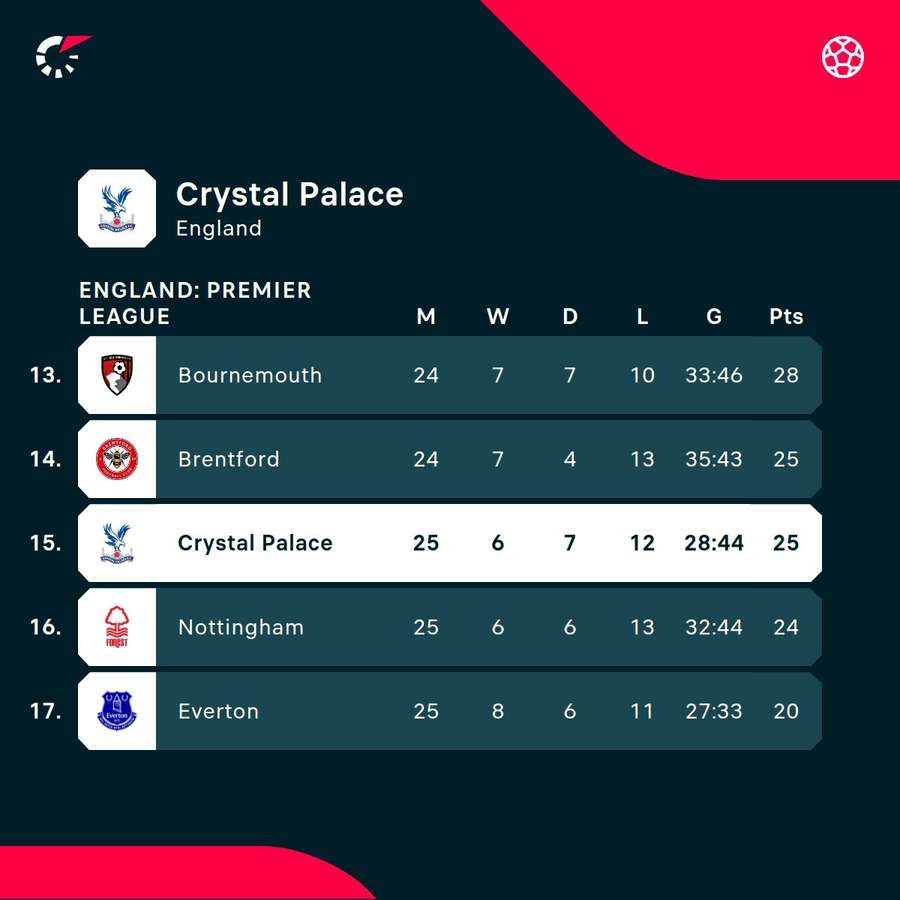
Hodgson has been in management since taking over at Swedish side Halmstad in 1976 and yet his philosophy has never waivered since then: "simple, unfussy, solid, 4-4-2" as it states in his 'style of management' section on his Wikipedia page.
It's always been that, and it's mostly worked for him and his long career.
But 1976 up until the early 2000s was a time where that sort of dependable, easy-to-enact formation worked - a time where players were more just footballers who ate and drank often to excess like us mere mortals, rather than athletes who are poked and prodded more regularly during training than Ivan Drago in Rocky 4 in more modern times.
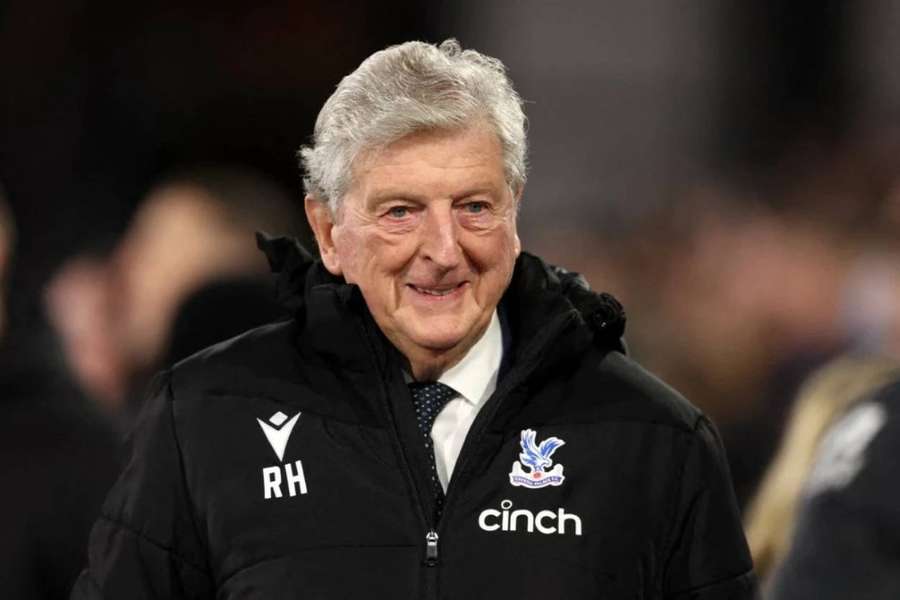
He's averaged a win percentage of 42.55 in that 47-year(!) period - which isn't terrible considering he's been at the helm of a club for a staggering 1,269 competitive matches.
Yet there's a noticeable decline from his time at Fulham in 2007, through Liverpool, West Brom, England, and his Watford stint sandwiched between the two Palace spells.
He averaged around 32 per cent across his staggered time at Selhurst Park, which obviously kept them in the league but also didn't start too many fires, especially given Palace have had some pretty decent squads over the last half a decade.
A CV for the ages
Now here's a key point: this could read as ageism and that's understandable, but in no way is this an attempt to undermine the man himself or his excellent life spent in the beautiful game.
Aside from a bit of an uninspiring - even disastrous - time spent as England boss (particularly that dreadful loss to Iceland at Euro 2016), most fans can't help but feel at least a little bit fond of Hodgson - how can you not respect a man of such longevity in an otherwise fickle and lightning fast-moving sport?
Perhaps it's the father-like/grandfather-like demeanour, the fact he speaks about 100 different languages and watches foreign films without subtitles, the sheer Football Manager-esque trajectory of his career, or his witty, often philosophical interviews and post-match press conferences - you can't help but admire the man for his intelligence, openness, communication and knowledge of the game.
And he's done nothing of the sort to tarnish his reputation but - having retired after his first stint in south London, and hindsight is a wonderful thing - perhaps he should have stayed retired?
His time at Watford did not go well at all and they were swiftly, unceremoniously relegated, while this latest escapade perhaps nearly literally killed him, or left him seriously ill at the very least.
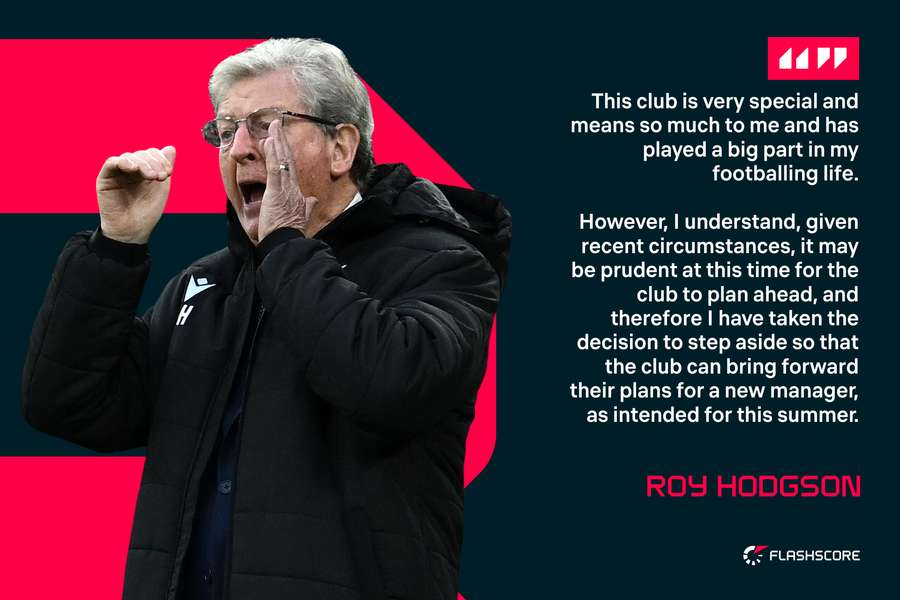
Sure, maybe it keeps him young working on the training ground but, despite his public demeanour, he's known for his ability to deliver an ear drum-shaking bollocking of mammoth proportions, hairdryer treatment that could rival pretty much anyone else in history. You can often hear his rottweiler-esque barks on the telly over thousands of fans.
But there must come a point where you realise you're from a different era and your relationships and managerial techniques that worked on players in the 80s, 90s, and 00s simply can't translate to today - especially when the vast majority of players on your roster weren't even born then.
When to throw in the towel
It would be rude and unfair to compare the ilk of Hodgson, Neil Warnock, and Sam Allardyce to a punch-drunk boxer who can't live without the adrenaline rush of a Las Vegas title fight, who always feels they've got one more left in them, but it must be a similar feeling for them.
Knowing the experience they have, the CVs and examples of keeping a team up, restoring some pride, turning around fortunes - it must be so hard to see these youngsters and former players of theirs coming in with their fresh ideas, flavour of the month style, ridiculously complicated formations and absolutely zero achievements to show for it, simply because it worked that one time when Barcelona did it with Pep Guardiola.
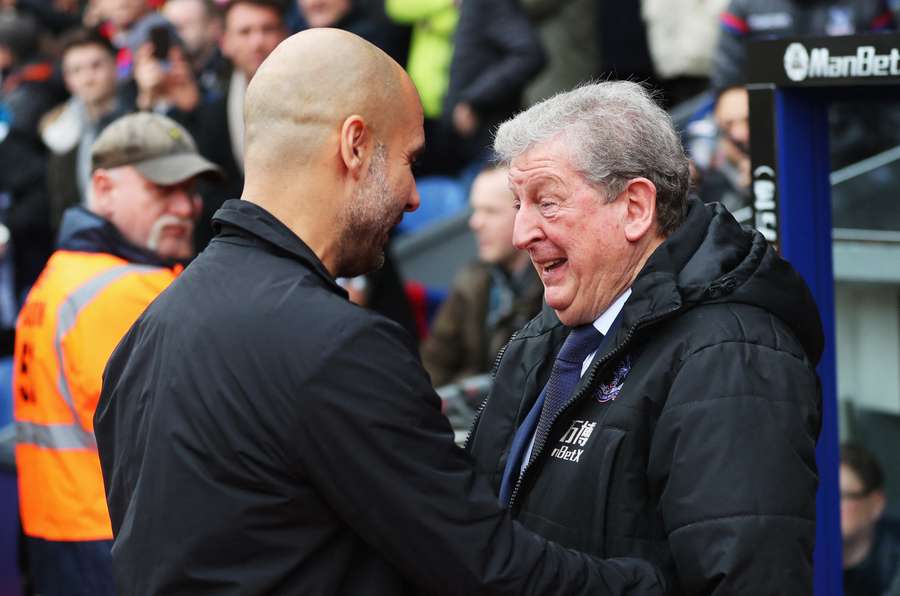
Yet there also has to come a realisation where you accept when your time has come, when you understand that your knowledge is perhaps better served upstairs in the boardroom, the posh seats, in the chairman's ear.
Sir Alex Ferguson is the prime example of this and remains heavily involved at Manchester United, and while Arsene Wenger perhaps still left it a little late he seemingly knew when it was time to hang up his gloves - and Arsenal are ultimately much, much better for it now.
No one should be shamed or forced into retirement due to their age.
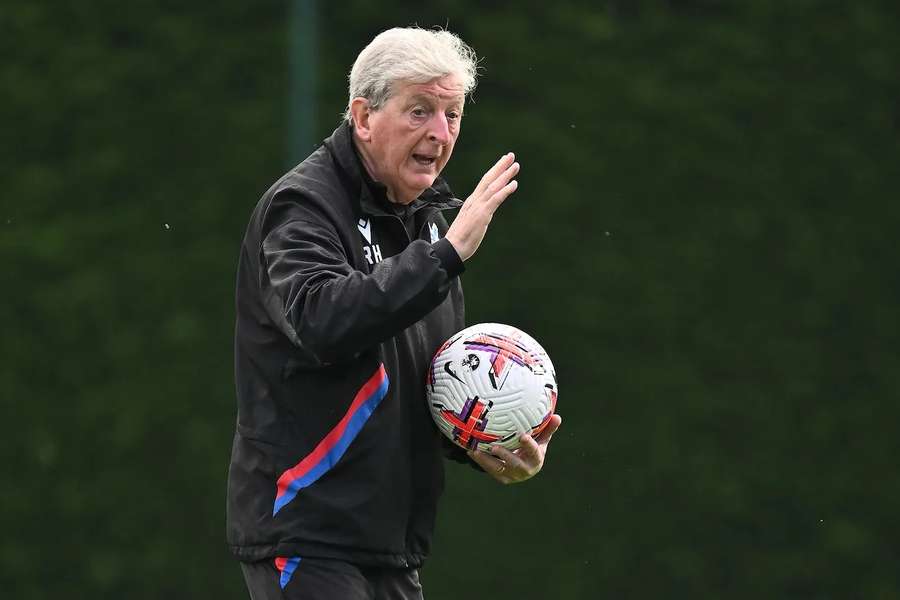
But perhaps owners of clubs - particularly those facing the on-and-off-the-pitch pressures of a Premier League team - should be more wise to their hires and fires and look to utilise these footballing relics and godfathers in smarter ways than just dumping them straight back into the fury and crossfire of the trenches.
Hopefully, Hodgson can now ride off into the sunset, happy, healthy and able to enjoy the game that he's given so much to, whilst putting his feet up and perhaps relaxing a bit more.


